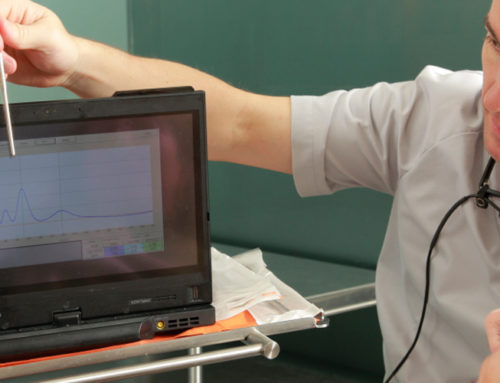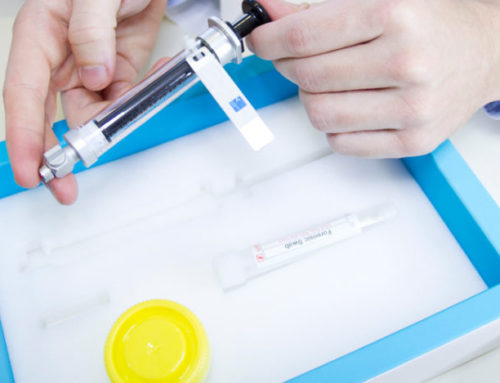The growing importance in our society of looking after our image has been translated into the ongoing demand of working professionals who attend breath check-ups.
Social psychologists say that thirty seconds are enough to evaluate a personal image and make a judgment about a person’s habits or value system. If we accept this approach, we become aware of the limited time available to make a good impression on our interlocutor – be it a work colleague, the Head of Human Resources or a client -; and that if we don’t get them to like our personal image, it is very likely that they won’t waste a second more of their time to discover our skills or talent.
“There is not a second chance to give a first impression” in the words of Ángeles de la Flor, organizational psychologist and image consultant of Aflora Consulting. “Our smile,” says the renowned psychologist, “our hairstyle, how we are dressed or our body odor – all these things are determining factors when it comes to how others value our personal image. And we all know the enormous rejection that an unpleasant breath can cause us to face. In this way, halitosis may not mean that we aren’t ensured a promotion or that new doors aren’t opened for us in the workplace, but the lack of neatness(care?) that is associated with halitosis can end up playing a trick on us and make us become the object of mockery or discrimination in our professional environment. ”
The growing importance in our society of a carefully-cultivated image has resulted in the continuing demand of professionals who attend check-ups at the Breath Institute, some with severe halitosis, and at the insistence of third parties, and others who request an appointment only to test the state of their breath. “We’re dealing with patients who have impeccable oral hygiene, but because of the position of responsibility they occupy or because they work extensively with the public, they need to feel very safe when it comes to interacting with others”, explains Jonas Nunes, director of the Instituto del Aliento .
“The awareness of suffering bad breath,” continues the specialist in halitosis, “has psychological consequences at work with visible manifestations in the behavior of those who suffer from it: for example, gestures such as covering the mouth when addressing a partner, maintaining a greater interpersonal distance or avoiding talking in meetings.”
Fortunately, halitosis can now be successfully treated in almost all cases. The identification of more than 80 causes that it can originate from, the appearance of modern diagnostic devices, and the development of highly effective therapies mean that, today, halitosis “can be eradicated”. The success rate obtained with the HCP Arthyaga® protocol developed by the Instituto del Aliento has been the highest that has been achieved so far, according to the main international medical databases. Buy zithromax online
In a sample of 704 patients who sought specific treatment for halitosis, 96.6% achieved complete elimination of halitosis, 0.6% had a biological response (although halitosis was eliminated, these patients did not feel psychologically cured ), 1.0% reached a partial response (there was no complete remission of halitosis although this decreased) and only 1.8% had a negative response (no improvement was recorded).
First-hand experience of suffering from halitosis
We are talking about an issue – halitosis, or bad breath – that we all recognize and that at some point in our working life we have been concerned about. This is not without good reason. It is estimated that 20% of the Portuguese population may suffer halitosis or bad breath on a frequent basis, regardless of gender, age or social class; and that half of the citizens have felt concerned by the state of their breath at one time or other. Buy keflex
The worst thing about halitosis is that many people suffer from it without knowing it and that, when they become aware of the problem, they suffer in silence because it is still a taboo subject in our society. In recent years it has been proven that halitosis has a strong impact on self-esteem and self-confidence, being a trigger for continued anxiety and stress. “A high percentage of our patients are professionals who come to the consultation after having been subject to discrimination in their jobs; from the executive who has not achieved his promotion to the employee who has been transferred from the department or withdrawn from a public-facing role without anyone daring to give the slightest explanation. And the explanation, unfortunately, is their halitosis, “explains Dr. Jonas Nunes. https://murraymed.com/nexium-over-the-counter/
Not only are the sufferers of bad breath affected; some studies have corroborated that suffering from halitosis also has clear negative effects on those people closest to them: family, friends and colleagues, regardless of whether or not measures are taken to address the problem. Thus, the most common reactions of people close to the affected can be:
- Anxiety
- Shame
- Impatience and intolerance (even in relation to other aspects not related to halitosis)
- Avoid prolonged conversations with the halitosis sufferer
- Scratching the nose, diverting the face or reducing their own inhalation rate
- Avoid appearing with the sufferer of halitosis in public
- Avoid intimate contact
- Doubts and insecurity in relation to one’s own breath
- Compulsive hygiene habits, such as over-brushing the teeth
If a co-worker has halitosis, should we tell him?
“Without any doubt, the answer is yes,” says Dr. Jonas Nunes. “It is surprising to confirm that the workmates and friends closest to the people suffering from halitosis prefer not to face this fact and to keep silent. When I ask them why they adopt this position, they defend themselves, arguing that it is a very sensitive issue and that they do not feel capable of expressing it openly. They are concerned that discussing the issue with the affected person can be interpreted as a value judgment of their oral hygiene level or as a verification of a problem that has no solution. ”
When this information is transmitted with a feeling of real concern and tact, however, people who suffer from halitosis greatly appreciate the fact of having been warned. “The patients who attend the breath consultations, when they explain the moment when they became aware that they suffered from halitosis, show gratitude towards the person who informed them. After all, the concern and ability to share difficult moments is what unites people,” concludes Dr. Jonas Nunes.
Ten rules for an embarrassment-free work life
Rule # 1: A confidant, a friend
The definition of halitosis as “an unpleasant odor perceived by third parties” allows us to understand that it is the others that must directly and objectively determine the existence of a perceptible and unpleasant odor. The most reliable way to confirm halitosis is to have a trusted co-worker who informs us every time we perceive an alteration in our breath.
Rule nº2: A complete oral hygiene
The regular use of dental floss and the cleaning of the tongue with a cleanser are determining factors in the control of bad breath; much more effective than ‘elixirs’.
Rule # 3: Watch what you eat
At meals, it is advisable to avoid foods such as garlic or onions, be careful with the intake of alcohol and some medications, as well as dietary and nutritional supplements because all these can have effects in the following hours.
Rule # 4: Eat and drink regularly
Prolonged fasting triggers halitosis. Drinking liquids is essential, since stress and dehydration decrease salivary secretion, causing a stagnation of organic remains and bacteria; and this increases the production of malodor compounds. Taking something mid-morning or mid-afternoon is essential to avoid bad breath.
Rule nº5: Avoid alcoholic beverages
Especially at work lunches. After intake and intake into the blood, the volatile byproducts of alcohol are released by the lung and remain in the expired air for hours.
Rule # 6: Avoid smoking
Tobacco contributes to halitosis in different ways. It dehydrates the mouth and volatilizes the malodorous compounds solubilized.
Rule # 7: Try not to breathe through your mouth
Buccal breathing causes the evaporation of saliva and of bad odor compounds, in addition to an alteration of the oral bacterial flora.
Rule # 8: Take control
Recognize your weak points and act in anticipation. For example, if you tend to have your mouth dry from anxiety or because you talk constantly in public, drink water frequently and use saliva stimulants.
Rule # 9: Stay tuned for telltale signs
Such as bleeding gums, dental mobility, tongue coating, dry mouth, unpleasant taste, obstructive nasal phenomena, tonsil stones, gastric and esophageal burning or prolonged constipation.
Rule nº10: Go to a specialized health professional
The halitosis must be faced as a medical problem, in addition to an aesthetic one. Go to a consultation in order to obtain a specific diagnosis and treatment of the halitosis.





